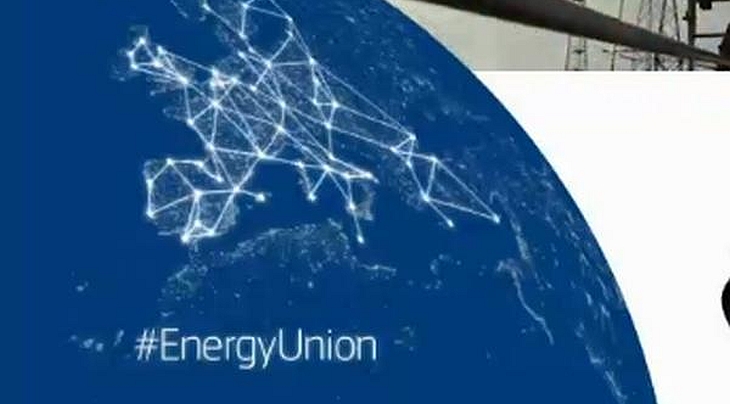EU policymakers have unveiled plans for an Energy Union, hailing it as the biggest energy shake-up for more than half a century. Experts told EurActiv that governance will be a sticking point. Member states will have to play ball for the project to be a success.
“It’s the biggest energy project since the Coal and Steel Community,” said Maros Šefčovič, European Commission vice-president responsible for Energy Union, when he presented the executive’s plans in Brussels on Wednesday (25 February).
The EU executive said the clash with Russia over its seizure of Ukraine’s Crimea region means there is the strongest case yet to pool resources across the EU. The European Union relies on Moscow for around a third of its energy. The energy plans aim to improve infrastructure to share available supplies across borders, partly with EU money; to end regulated pricing, increase the number of liquefied natural gas (LNG) terminals and enforce existing EU law on competition.
Europe’s energy union strategy includes a raft of measures and will be followed by legislative proposals. But striking the right balance between granting the EU powers while respecting subsidiarity – the allocation of powers and responsibilities – will be a challenge, experts told EurActiv.
“The Commission will only be able to deliver a meaningful Energy Union if member states play ball,” said Jacopo Moccia, director at Ocean Energy Europe.
Success depends on powers granted
National governments have always jealously guarded their own control over energy decisions, largely because of strategic needs and their stance on the environment.
“The EU Commission will only be able to deliver its vision if leading, not following the 28 member states,” argued Alice Stollmeyer, EU energy expert and blogger who published a draft version of the communication last week.
It’s unclear whether the Energy Union will be able to bridge this “because it all depends on governance the enforcement and implementation of energy policy goals in member states – and the Commission paper provides no detail,” said David Buchan, senior research fellow at the Oxford Institute for Energy Studies.
“The Commission will need some new power to supervise member states’ performance in renewables and energy efficiency,” Buchan said. “ACER needs to be given more power over the European networks of transmission system operators [ENTSOE, for electricity, and ENTSOG, for gas],” he added.
The Agency for the Cooperation of Energy Regulators (ACER) was tipped earlier as the single supervisor for the Commission’s planned measures, which was confirmed in recent communication. According to Buchan, granting ACER such powers could “speed up agreement on cross-border trading arrangements and prioritize and direct new infrastructure investment for which there currently is no real incentive or reward.”
The Commission is also calling on member states and companies to consult it when negotiating with big suppliers, such as Russia, in an attempt to end Moscow’s strategy of divide and rule that has allowed some countries to secure more favorable deals than others. The Commission says better energy connections can save consumers up to 40 billion euros per year, which corresponds to roughly 80 euros per capita across the EU.

